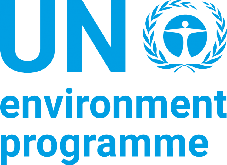Trinidad and Tobago has joined the BreatheLife campaign, pledging to reach an interim air quality target for fine particulate matter under WHO air quality guidelines by end-2025, and achieving this through action across the economy.
The prosperous Caribbean nation has committed to attaining safe air quality by tightening its Air Pollution Rules (2014) to align its air quality standards for fine particulate pollution (PM2.5) with WHO’s guidelines’ interim Target 3. Under this, the 24-hour concentration standard for PM2.5 will be reduced from the current 65 μg/m3 to 35 μg/m3 by the end of 2025.
Recognizing the impact air quality has on human health, the country’s Environmental Management Authority (EMA) and the Pan American Health Organization (PAHO) in 2019 began working on a Roadmap for Air Quality for Trinidad and Tobago and a Stakeholders Matrix for beneficiaries and interested parties for air quality in the country. Greater collaboration among the EMA, PAHO and Ministry of Health is envisioned, to link air quality data and non-communicable disease statistics in the country.
Trinidad and Tobago has also ratified the Paris Agreement, under which it has committed to reducing cumulative greenhouse gas emissions from a business as usual (BAU) baseline by 15 per cent in the transport, industry and power generation sectors, to be achieved by 2030.
“We are aware of the adverse health effects of both short-term and long-term exposure to particulate matter, and that no air quality standard can guarantee complete protection for all citizens against all possible adverse health effects of particulate matter,” said Managing Director of the Environmental Management Authority, Mr. Hayden Romano, “but we are committed to achieving the lowest concentrations possible in the context of local constraints, capabilities and public health priorities, as advised by the WHO.”
The country of just over 1.36 million people intends to achieve its proposed targets by tracking air quality and reduction progress through a national ambient air quality monitoring network, currently being expanded; enhancing its registration and permitting regime for facilities that emit air pollutants, and upholding commitments under the Paris Agreement.
Read the full story here.
